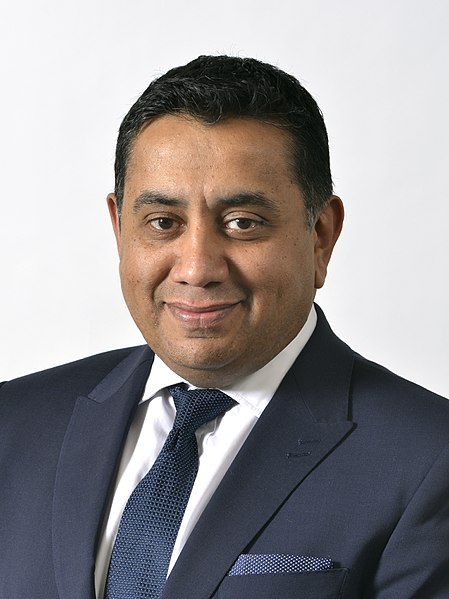
Statement by Lord (Tariq) Ahmad of Wimbledon at the UN Security Council open debate on the protection of civilians.
Mr President, it’s a pleasure to join this debate under your stewardship, and I thank you and Switzerland for convening this important debate at this important time and acknowledge your contribution and that of His Excellency, the President of Malta and His Excellency, the President of Mozambique. Again, seeing stewardship at the head-of-state level also indicates the importance of this particular subject. I am also particularly moved by the quite specific contributions of the Minister from Ghana.
Minister Dery, you’ve outlined quite specifically the requirements on Member States on how we can do more in resolving conflict. And of course, I acknowledge the valuable insights of our expert briefers, the President of the ICRC. Mirjana, again, you highlighted some of the practical steps and challenges you face and the responsibilities of coordinated responses with Member States and of course, the unique insights from Africa, from Madam Mounkaīla which were extremely valuable when we see drivers of climate change as a key consequence, which then drives conflict itself.
The Secretary-General himself paints a bleak picture, and rightly so, of the conflicts that rage around the world. More than 20 major live conflicts are currently gripping the globe from across all continents Myanmar, Mali, Ukraine, Sudan, Nigeria, Afghanistan, Somalia, to name but a select few. A greater number of affected civilians, as we heard from Secretary-General Guterres, are affected. Civilians who suffer, who suffer and die at the hands of disease, who suffer and die because of malnutrition and impoverishment, and they suffer and die because of these more so than military operations. This, colleagues, friends, is 2023. All of these can be avoided.
The destruction of infrastructure. As we’ve already heard, healthcare, economies and food production causes untold suffering. A point well outlined by the president of the ICRC. A quarter of a billion people in 2023 are experiencing the most acute levels of hunger caused by conflict. I myself, like others, recently saw this together with Her Royal Highness, the Duchess of Edinburgh when we visited the Democratic Republic of Congo. And a great many of them who are tragically suffering are women, who are girls. It is women who tend to eat last. It is women who eat least. It is women who end up eating not at all.
In conflict, women and girls, tragically, are also exposed to high levels of gender-based violence, including abhorrent sexual violence. As the United Kingdom’s Special Representative for Preventing Sexual Violence in Conflict, I assure you I shall never accept this as an inevitable consequence of war, and nor should anyone. And working with our partners and friends, we will continue to support survivors of sexual violence and help them secure justice, help them rebuild their lives. Mr. Putin’s full-scale invasion of Ukraine has also unleashed other consequences, inflation and shortages of food, as we’ve heard just now from the Minister from Ghana. And this has impacted food security far beyond the continent of Europe. We therefore once again urge Russia to end your occupation and enable life-saving Ukrainian exports to continue into the future. The Sea Grain Initiative in the Black Sea is an important part of this and it must continue to operate. Mr President, there are three areas that we, the United Kingdom, believe should be prioritised.
Firstly, we must do more to improve compliance with international humanitarian law, and we must do more collectively to show that non-compliance is truly a red line. Parties to conflict must be held to account. We welcome initiatives in countries like Somalia, where the government is showing true leadership by strengthening the focus on civilian protection and stabilisation and planning pre-deployment training in humanitarian law for its own troops. And even in Sudan, where we have immense and grave concerns, we welcome parties to the conflict, recognising their responsibilities under international law and committing to allowing and facilitating humanitarian assistance.
The United Kingdom reports voluntarily on its own compliance with humanitarian law as well, and we are encouraged to see many other Member States doing the same. To tackle conflict-induced hunger, we also need a greater focus on relevant aspects of international humanitarian law. And in this respect, we are also developing a legal handbook to achieve part of this objective.
Secondly, we can make better use of our early warning systems. Resolution 2417, as we’ve heard already, is our warning system for conflict-induced hunger and reporting under it needs to be much quicker. This Council, this Security Council needs to act more promptly on the information it provides in order to save lives.
Thirdly, we must ensure coherence and coordination between our diplomatic, humanitarian development and peace initiatives. Ultimately, we can only deliver peace. We can only deliver peace with efficient and sustained diplomacy. And we will not be able to deliver sustainable peace without ensuring humanitarian support to ensure sustainable livelihoods.
The United Kingdom on our part, is steadfast in our commitment to support countries to recover from conflicts. And in this regard, next month in London, we will host the Ukraine Recovery Conference, which also importantly will be engaging the private sector in terms of reconstruction.
Mr President, our well-intentioned words must be followed by swift action. Civilians caught up in conflict need protection now. They need food now. They need essential services. Not tomorrow, but today. And they need them to be delivered promptly. And I assure you that we, the UK, remain committed to supporting those facing the brutal convergence of climate change, as we heard from Madam Mounkaīla, which drives conflict in many parts of the world. And we’ve seen that quite starkly around the Lake Chad Basin. Tomorrow, the United Kingdom will join the United States, Italy, Qatar and OCHA [United Nations Office for the Coordination of Humanitarian Affairs] to focus attention on the crisis in the Horn of Africa. We must raise urgent humanitarian funds to save lives, to save lives now. And we must also invest in long-term solutions to build resilience for the future. As we’ve heard today, again from a number of representatives, including, importantly, those from across Africa.
But ultimately, Mr President, together as we, the United Nations, we have the tools, we have the means at our disposal to prevent and end conflicts today, to restore stability, to deliver accountability and justice, and to give hope back to civilians, to give civilians their lives back. It is our moral imperative to do just that.
Thank you, Mr. President.
Photo by UK Home Office, Wikimedia commons.








































